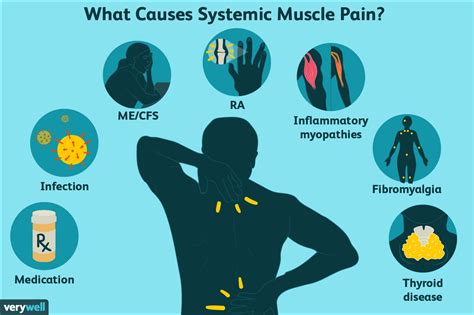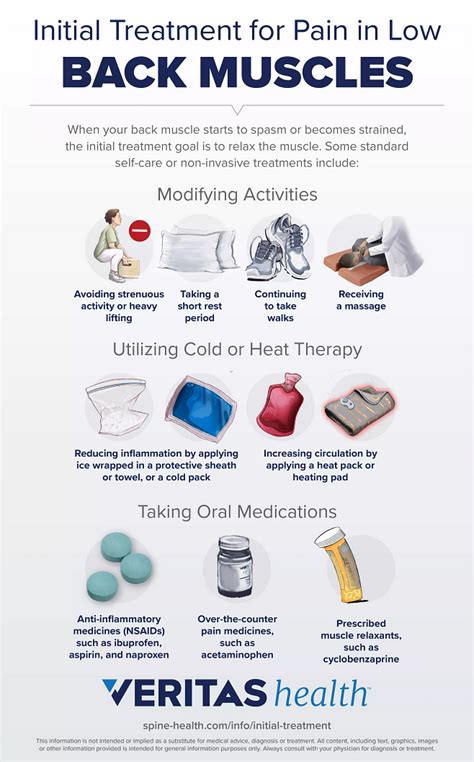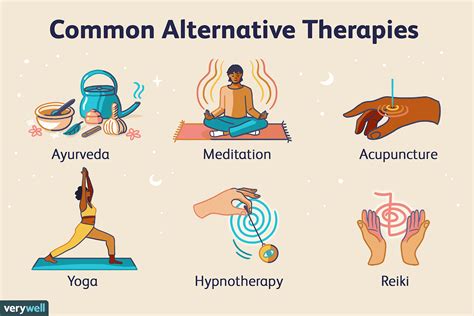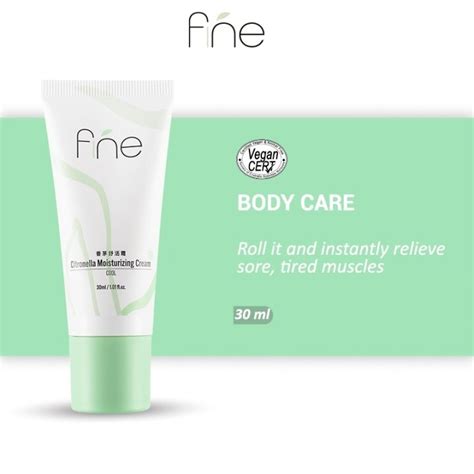Intro
Relieve muscle pain with effective treatments and therapies, including exercise, massage, and relaxation techniques, to reduce muscle soreness and inflammation, promoting natural muscle pain relief and recovery.
Muscle pain can be a debilitating and frustrating condition that affects millions of people worldwide. It can be caused by a variety of factors, including injury, overuse, or underlying medical conditions. When muscle pain strikes, it can be challenging to perform daily activities, and it can significantly impact one's quality of life. Fortunately, there are various ways to alleviate muscle pain, and understanding the underlying causes and mechanisms can help individuals find effective relief.
Muscle pain can manifest in different forms, ranging from mild soreness to severe, debilitating pain. It can be localized to a specific area or widespread, affecting multiple muscle groups. In some cases, muscle pain can be accompanied by other symptoms, such as stiffness, limited range of motion, or swelling. The good news is that most cases of muscle pain can be managed with a combination of self-care techniques, lifestyle modifications, and medical interventions. By exploring the various options available, individuals can find relief from muscle pain and regain control over their daily lives.
The importance of addressing muscle pain cannot be overstated. Chronic muscle pain can lead to decreased mobility, reduced productivity, and a lower overall quality of life. Furthermore, unmanaged muscle pain can increase the risk of developing other conditions, such as depression, anxiety, or sleep disorders. By prioritizing muscle pain relief, individuals can take a proactive approach to maintaining their physical and mental well-being. In this article, we will delve into the world of muscle pain relief, exploring the various causes, symptoms, and treatment options available.
Muscle Pain Causes and Mechanisms

Muscle pain can be caused by a variety of factors, including muscle strain, overuse, or underlying medical conditions. Muscle strain occurs when the muscle fibers are stretched or torn, leading to inflammation and pain. Overuse injuries, on the other hand, can result from repetitive activities or prolonged periods of physical activity. Medical conditions, such as fibromyalgia, arthritis, or thyroid disorders, can also contribute to muscle pain. Understanding the underlying causes of muscle pain is essential for developing effective treatment strategies.
Some common causes of muscle pain include:
- Muscle strain or pulled muscles
- Overuse injuries, such as tendonitis or bursitis
- Medical conditions, such as fibromyalgia or arthritis
- Poor posture or body mechanics
- Nutritional deficiencies, such as vitamin D or magnesium deficiency
- Hormonal imbalances, such as thyroid disorders
Types of Muscle Pain
Muscle pain can be classified into different types, depending on the underlying cause and location. Acute muscle pain typically occurs suddenly and is often caused by injury or overuse. Chronic muscle pain, on the other hand, persists over time and can be caused by underlying medical conditions or repetitive strain. Localized muscle pain affects a specific area, while widespread muscle pain can affect multiple muscle groups.Muscle Pain Relief Techniques

Fortunately, there are various techniques available for relieving muscle pain. These can be broadly classified into self-care techniques, lifestyle modifications, and medical interventions. Self-care techniques, such as stretching, foam rolling, or heat therapy, can help alleviate muscle tension and promote relaxation. Lifestyle modifications, such as regular exercise, balanced diet, or stress management, can help prevent muscle pain and promote overall well-being.
Some effective muscle pain relief techniques include:
- Stretching or foam rolling to relieve muscle tension
- Heat or cold therapy to reduce inflammation and pain
- Massage therapy to promote relaxation and reduce muscle spasms
- Acupuncture or acupressure to stimulate healing and reduce pain
- Yoga or tai chi to promote flexibility and balance
Medical Interventions for Muscle Pain
In some cases, medical interventions may be necessary to alleviate muscle pain. Over-the-counter pain relievers, such as acetaminophen or ibuprofen, can help reduce pain and inflammation. Prescription medications, such as muscle relaxants or corticosteroids, may be prescribed for more severe cases of muscle pain. Physical therapy or chiropractic care can also help address underlying issues, such as poor posture or muscle imbalances.Lifestyle Modifications for Muscle Pain Prevention

Preventing muscle pain is often easier than treating it. By incorporating lifestyle modifications into daily routines, individuals can reduce their risk of developing muscle pain. Regular exercise, such as cardio or strength training, can help improve muscle strength and flexibility. A balanced diet, rich in nutrients and antioxidants, can help promote muscle health and reduce inflammation.
Some lifestyle modifications for muscle pain prevention include:
- Regular exercise, such as cardio or strength training
- Balanced diet, rich in nutrients and antioxidants
- Stress management techniques, such as meditation or deep breathing
- Good sleep habits, such as maintaining a consistent sleep schedule
- Proper posture and body mechanics, such as taking regular breaks to stretch
Nutritional Considerations for Muscle Pain
Nutrition plays a critical role in muscle health and pain management. A diet rich in nutrients, such as protein, complex carbohydrates, and healthy fats, can help promote muscle function and reduce inflammation. Certain nutrients, such as vitamin D, magnesium, or omega-3 fatty acids, may also have anti-inflammatory properties, which can help alleviate muscle pain.Alternative Therapies for Muscle Pain Relief

In addition to conventional treatments, alternative therapies can also provide effective relief from muscle pain. Acupuncture, massage therapy, or chiropractic care can help stimulate healing, reduce muscle tension, and promote relaxation. Mind-body therapies, such as meditation or yoga, can also help manage stress and promote overall well-being.
Some alternative therapies for muscle pain relief include:
- Acupuncture or acupressure to stimulate healing and reduce pain
- Massage therapy to promote relaxation and reduce muscle spasms
- Chiropractic care to address underlying issues, such as poor posture or muscle imbalances
- Mind-body therapies, such as meditation or yoga, to manage stress and promote relaxation
Home Remedies for Muscle Pain Relief
Home remedies can also provide effective relief from muscle pain. Simple techniques, such as applying heat or cold packs, can help reduce inflammation and relieve pain. Herbal remedies, such as turmeric or ginger, may also have anti-inflammatory properties, which can help alleviate muscle pain.Conclusion and Future Directions

In conclusion, muscle pain is a common condition that can be caused by a variety of factors. Understanding the underlying causes and mechanisms can help individuals find effective relief. By incorporating self-care techniques, lifestyle modifications, and medical interventions, individuals can manage muscle pain and promote overall well-being. As research continues to evolve, new treatments and therapies may become available, offering even more effective solutions for muscle pain relief.
We invite you to share your thoughts and experiences with muscle pain relief. Have you found any effective techniques or therapies that have helped you manage muscle pain? Share your story in the comments below, and help others find relief from this debilitating condition.
What are the most common causes of muscle pain?
+Muscle pain can be caused by a variety of factors, including muscle strain, overuse, or underlying medical conditions. Other common causes include poor posture, nutritional deficiencies, and hormonal imbalances.
How can I prevent muscle pain?
+Preventing muscle pain is often easier than treating it. By incorporating lifestyle modifications, such as regular exercise, balanced diet, and stress management, individuals can reduce their risk of developing muscle pain.
What are some effective alternative therapies for muscle pain relief?
+Alternative therapies, such as acupuncture, massage therapy, or chiropractic care, can provide effective relief from muscle pain. Mind-body therapies, such as meditation or yoga, can also help manage stress and promote overall well-being.
